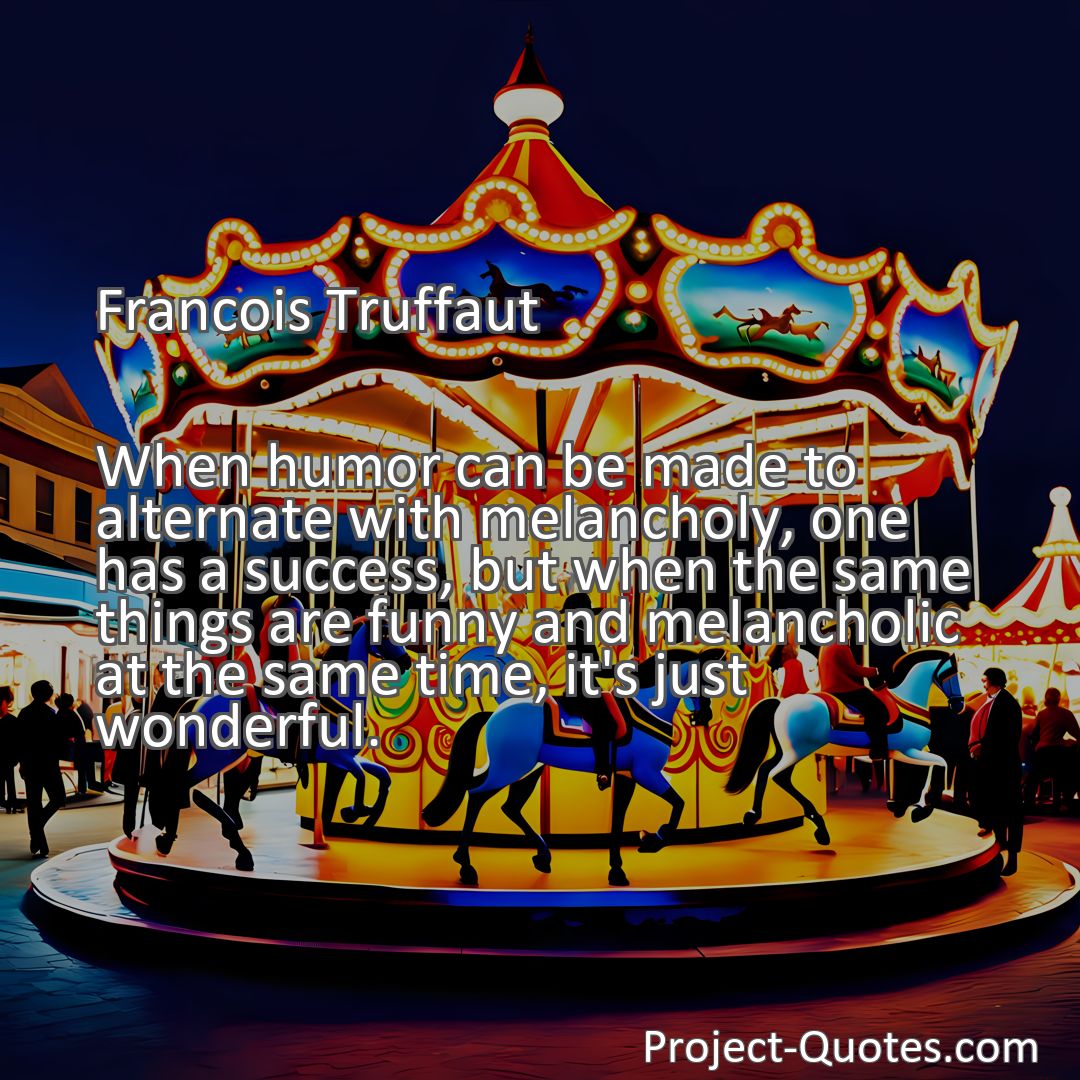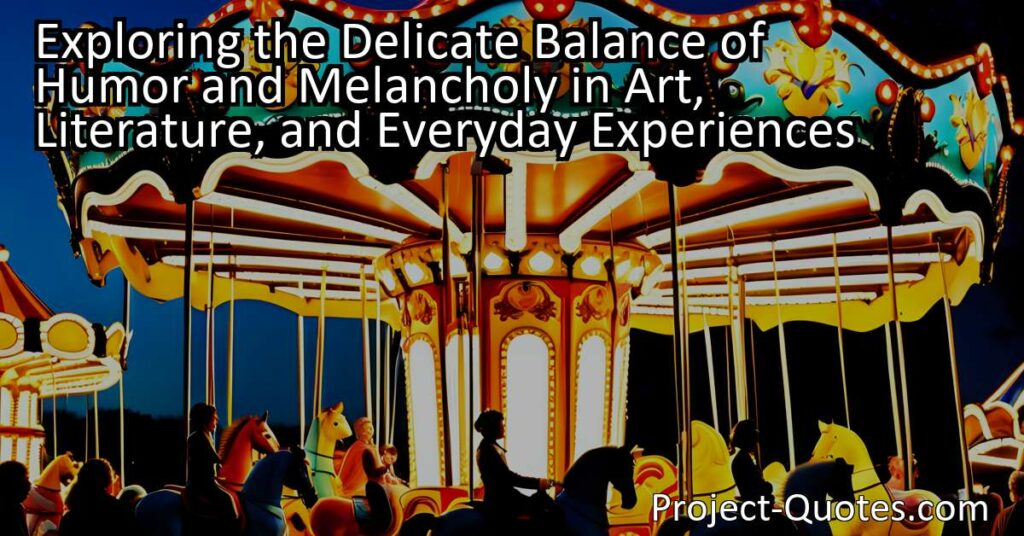When humor can be made to alternate with melancholy, one has a success, but when the same things are funny and melancholic at the same time, it’s just wonderful.
Francois Truffaut
Exploring the Delicate Balance of Humor and Melancholy in Art, Literature, and Everyday Experiences Humor and melancholy, two contrasting emotions, often intertwine in various aspects of life. When they alternate, a sense of success is achieved, but when they coexist simultaneously, it becomes truly wonderful. This delicate balance can be found in art, literature, movies, music, and even in our daily experiences, evoking a range of emotions and adding depth to the human experience.
Table of Contents
- 1 When humor can be made to alternate with melancholy, one has a success, but when the same things are funny and melancholic at the same time, it’s just wonderful.
- 2 Francois Truffaut
- 3 Meaning of Quote – When humor can be made to alternate with melancholy, one has a success, but when the same things are funny and melancholic at the same time, it’s just wonderful.
- 4 Freely Shareable Quote Image
- 5 Related
Meaning of Quote – When humor can be made to alternate with melancholy, one has a success, but when the same things are funny and melancholic at the same time, it’s just wonderful.
Humor and melancholy are two contrasting emotions that often find themselves intertwined in various aspects of life. As the quote suggests, when these emotions alternate, a sense of success is achieved. However, when something manages to evoke both humor and melancholy simultaneously, it becomes truly wonderful. This delicate balance between two seemingly opposite emotions can be found in various forms of art, literature, and even in our everyday experiences.
One of the ways in which humor and melancholy can alternate is through the use of irony. Irony adds a layer of unexpectedness to a situation or story, often resulting in a humorous outcome. However, this humor can also evoke a sense of sadness or melancholy when the underlying truth or message reveals something deeper. This combination of contradictory emotions can create a profound impact on the audience, capturing their attention and leaving a lasting impression.
In literature, authors skillfully employ this juxtaposition of humor and melancholy to explore complex themes and evoke a range of emotions in their readers. Classic novels such as “The Catcher in the Rye” by J.D. Salinger and “To Kill a Mockingbird” by Harper Lee are perfect examples of this. These works not only make us laugh through witty dialogue and amusing situations but also address deeper societal issues that can leave us feeling reflective and melancholic. The ability to seamlessly alternate between these emotions is what makes these novels timeless and resonant with readers of all ages.
Moreover, it is not just in literature that this combination is found. In movies, comedy-dramas often strike a similar balance, making us laugh hysterically at one moment and bringing tears to our eyes the next. These films present a realistic portrayal of life, where humor and melancholy coexist, reflecting the complexities of human emotions and experiences. The ability to evoke different emotions in a single movie is what captivates audiences and keeps them engaged.
Furthermore, music also has the power to bring about a blend of humor and melancholy. Many musicians and songwriters have mastered the art of intertwining these emotions, creating songs that can make us smile while simultaneously tugging at our heartstrings. Consider the music of the Beatles, for example. Songs like “Eleanor Rigby” and “A Day in the Life” explore themes of loneliness, sorrow, and existential questioning, yet are delivered with a touch of irony or clever wordplay. This fusion of humor and melancholy not only enhances the musical experience but also allows listeners to connect on a deeper emotional level.
In our daily lives, we also encounter instances where humor and melancholy coexist. These situations can arise from personal experiences or from observations of the world around us. For instance, attending a family gathering can be both amusing and melancholic. The humor comes from the lighthearted banter and shared jokes, while the melancholy arises from the awareness of the passing of time and the nostalgia associated with reunions. These contrasting emotions create a bittersweet atmosphere, reminding us of the fleeting nature of life and the importance of cherishing meaningful moments.
Moreover, humor, when infused with a touch of melancholy, often acts as a coping mechanism during difficult times. It allows us to find solace and relief amidst challenging circumstances, providing a temporary escape from the hardships we face. This blend of emotions helps us process and navigate through life’s complexities, reminding us that even in tough times, there are moments of lightness and joy to be found.
In conclusion, the combination of humor and melancholy is a powerful tool that evokes a range of emotions in various forms of art, literature, and everyday experiences. Being able to alternate between these emotions creates a sense of success, while their simultaneous presence adds an extra layer of wonder. Whether in literature, movies, music, or our daily lives, this fusion adds depth and complexity to the human experience. So, let us appreciate and embrace these moments where humor and melancholy dance hand in hand, for it is in these moments that we discover the true wonders of life.
I hope this quote inspired image brings you hope and peace. Share it with someone who needs it today!


